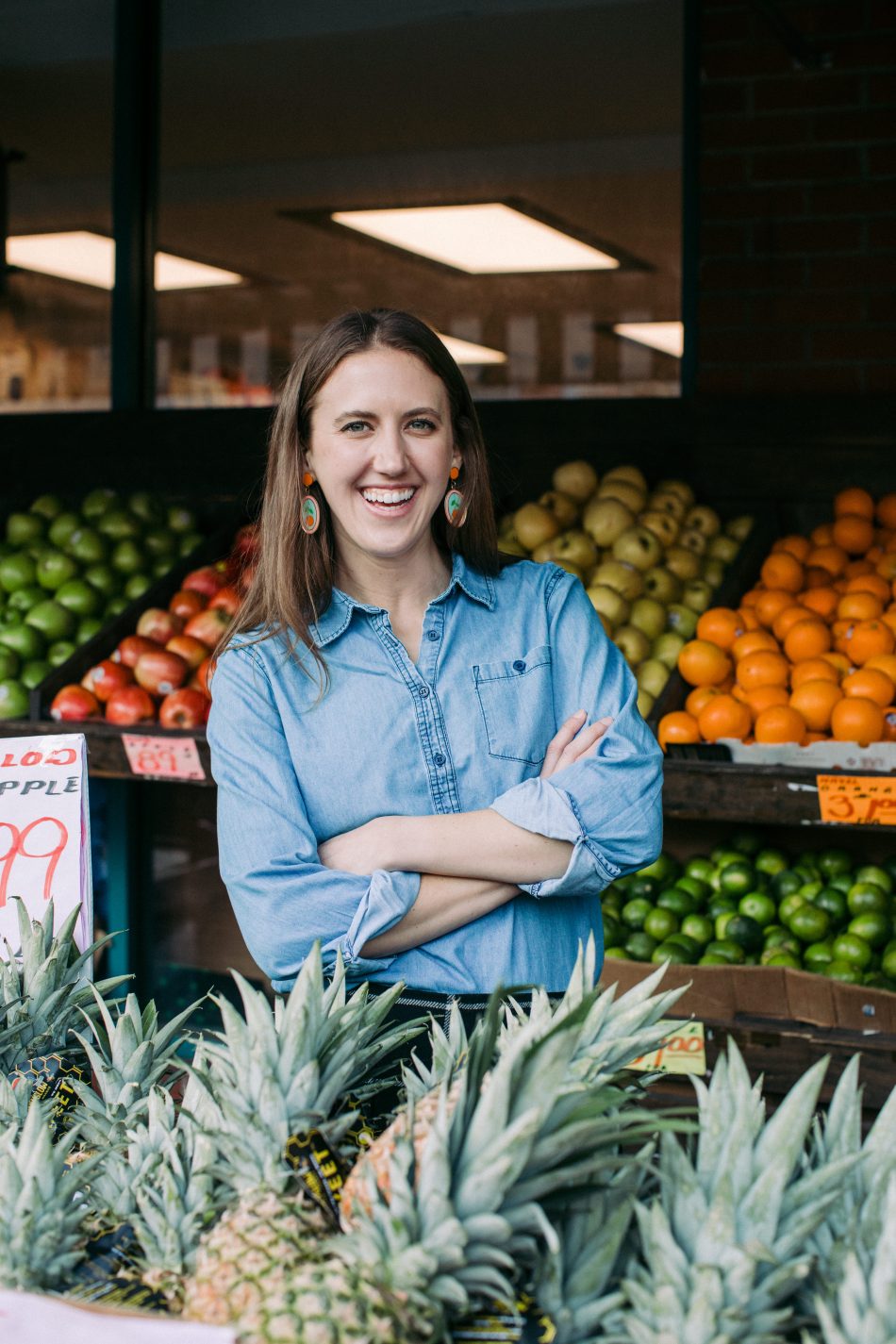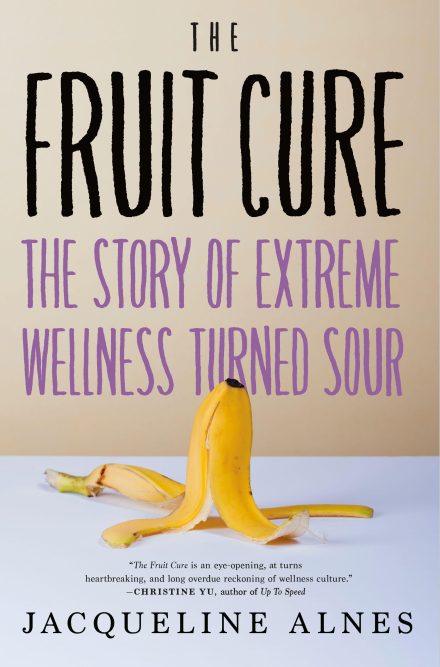"The Fruit Cure" is a memoir and a critical look at fad diets and scam cures, and has been reviewed in the Washington Post and the Wall Street Journal. Alnes will read from the book in a March 13 appearance at Elon.
Elon alumna Jacqueline Alnes ’13 published her first book, a memoir called “The Fruit Cure,” in January, cautioning against fad diets and garnering attention from the Washington Post and the Wall Street Journal.

In it, Alnes recounts her struggles with a mysterious neurological condition that derailed her career as a Division I runner at Elon and left her desperate for answers. That search continued for years, driving her into the sphere of online diet influencers promoting fruitarian-ism and their followers. While she never fully bought into those diets, she “was a lurker for eight to 10 years,” and “The Fruit Cure” turns her journey to wellness into a treatise examining the history and reach of fad diets and scam cures.
“I was consuming so much content, which was diet advice from people who didn’t have any credentials to give diet advice,” Alnes said. “I did a lot of research on people who have fallen for these diets. All of us at one point have felt exactly the same way: very sad and alone and like no one understands us. By writing this, I discovered I’m not alone. That’s very powerful to realize.”
Alnes will read from “The Fruit Cure,” published by Penguin Random House, at a campus appearance with fellow alumna Natalie Lampert ’11 on March 13 in the McBride Gathering Space in Numen Lumen Pavilion. Lampert’s reported memoir, “The Big Freeze” will be published this summer by Penguin Random House.
Alnes is currently an assistant professor of English at West Chester University. After earning an English degree from Elon, she completed her master’s degree in fine arts at Portland State University and a doctorate at Oklahoma State University. Her works has appeared in The New York Times, Guernica, The Boston Globe and Longreads, among others. Her paintings of inspiring athletes were featured on NBC during the 2020 Tokyo Olympic Games and in Runner’s World.
Though not formally diagnosed, her symptoms have improved with medical treatment and she lives a healthy, active life.
 Q: Why was it important for you to tell this story?
Q: Why was it important for you to tell this story?
A: Part of it was just making sense of my story for myself. A lot of how I felt about my body and illness, and about why I had turned to this kind of absurd internet forum for answers, remained a mystery to me. I’m a logical person, and fairly skeptical about things, so this was a puzzle to me. Writing this helped me figure it out and feel a lot less alone in my experience. Thinking about these greater, systemic issues also helped me in my healing journey.
Q: What about these online diets, influencers and communities attracted you?
A: When I found them, I was a junior in college. I had dropped all my classes except one because I couldn’t attend class, and I was waiting for a bed at Duke University Medical Center. It was just me sitting alone in my apartment all day while my roommates went to class. I felt worse than I ever had. I was lonely, desperate and in year three of trying to figure out what was going on with my body. I wanted someone out there to say, “Here’s what you need. I’ll take care of you.” This community offered that. They said I could regain control over my health.
Q: What was your experience with the health care system?
A: I remember doctors saying, “You’re fine. You can return to running.” I started to internalize that and think that maybe it was in my head or that I was being dramatic. That contributed to my own inability to seek help and figure out my symptoms until later in life.
Many people are let down by the systems in place because of cost, accessibility, racism, or doctors disbelieving symptoms that later turn out to be real. By no means am I saying the healthcare system is abysmal, but I think our current system leaves people feeling desperate and alone with bodies that are ill, then they turn to a “scammy” cure for help.
Q: What should readers take away from “The Fruit Cure”?
A: To resist binaries as much as possible and think more critically about them. I used to live in an all-or-nothing, healthy-or-unhealthy mindset. That meant I was never happy because I was never fully cured or my former self. And it led to belief in some of the things I saw on the internet. I live in the gray area now. It’s messier, but a lot more real. I can be symptomatic once a year. I can run successfully but it doesn’t have to be my whole life.
Q: What advice would you give aspiring writers?
A: Give yourself permission to fail. Allowing yourself a space to try something that might not be exactly what you want it to be, that you might not get it right on the first attempt. It’s worth it to try, experiment and get a sense of who you are in as many ways as you can. The classes I took at Elon were some of the most formative in allowing that. The people you’re sitting next to in class are your peers, and they might be in your life 10 or 20 years from now. Treat them with the kindness, respect and curiosity that you’d give your own work.
Q: What advice would you give current Elon students?
A: I currently teach college, and I’m teaching students who are the same age as I was when my journey began. I tell them to follow their obsessions. As a junior who was obsessed with this 30-bananas-a-day website, I tell them to figure out and be curious about their interests, because look where it can lead to. Chase those obsessions and ask questions about them. Approach them through different frameworks. It can be such a rewarding journey.
Q: How did Elon influence your life and career as a writer and professor?
A: There are so many people at Elon who I have in my head when I sit down to write. Professor Emerita of English Jean Schwind cared about me beyond the boundaries of the classroom. Associate Professor of English Drew Perry’s writing classes changed my life, and I don’t think I’d be a writer without them. He viewed us as writers, not just students. He wanted you to be authentic and he also pushed you. Now when I’m teaching writing, every day I show up in the classroom is a chance to be a Drew or a Dr. Schwind for someone else, to remember what they did and embody that in my own way.


